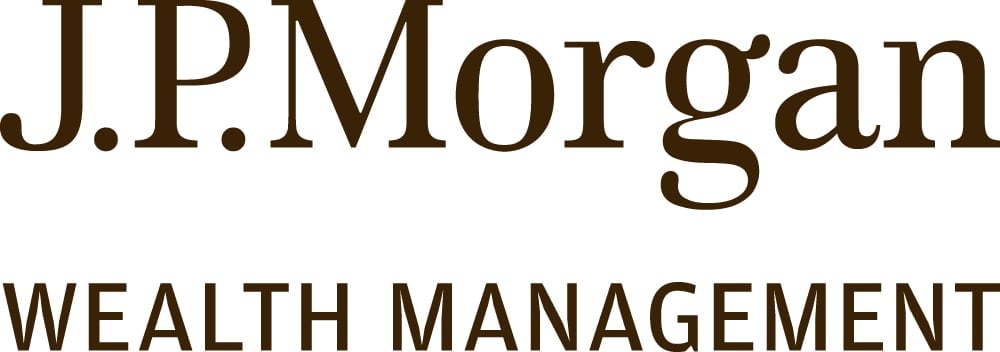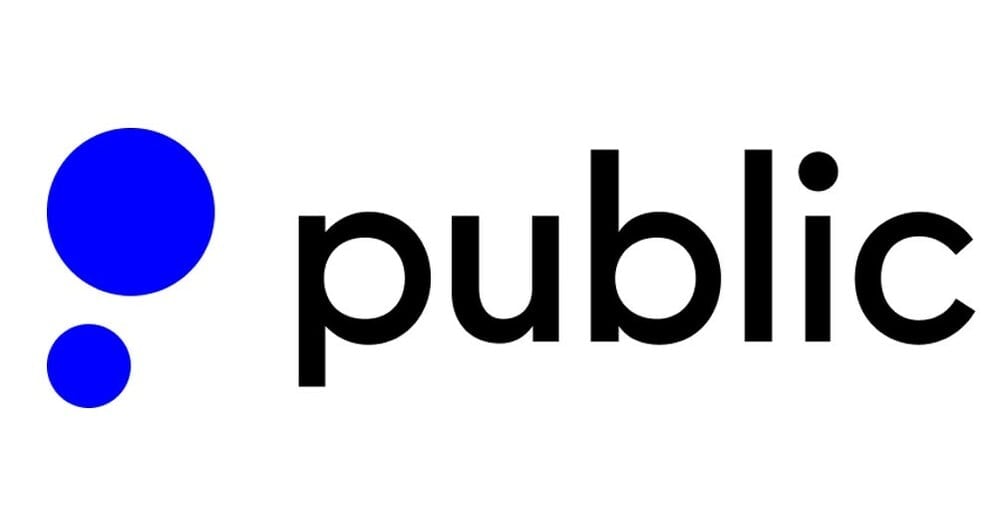Best Online Brokerage Accounts for Stock Trading: April 2024
In our analysis, these 11 online brokers stand out as the best brokerage accounts to trade stocks, due to their low fees, strong trading platforms and quality customer support.
Many or all of the products featured here are from our partners who compensate us. This influences which products we write about and where and how the product appears on a page. However, this does not influence our evaluations. Our opinions are our own. Here is a list of our partners and here's how we make money.
The investing information provided on this page is for educational purposes only. NerdWallet, Inc. does not offer advisory or brokerage services, nor does it recommend or advise investors to buy or sell particular stocks, securities or other investments.
Most investors trade stocks and other investments through a brokerage account at an online broker. The best brokers are well-rounded, offering high-quality, responsive customer service, fast trade execution, comprehensive yet user-friendly stock trading platforms, free investment research, and a large selection of investments.
You'll also want to pay close attention to fees, but the brokers that made our list of the best brokerage accounts don't charge trading commissions on stocks or exchange-traded funds. Other fees may creep up — most commonly, brokers tend to charge fees to trade more complex investments like options, and there may be fees to transfer money out of your account. Both are factored into our analysis.
Summary of the best online brokers:
How we select the best brokerage accounts for stock trading
The star ratings below represent the broker's overall score. Our reviewers — who are investing writers and editors on NerdWallet’s content team — spend months compiling this list every year, extensively testing each brokerage account's stock trading capabilities in our analysis. That way, we’re able to report on every aspect of the user experience, from funding a new brokerage account to actually placing trades.
We score each online broker against a set of criteria that factors in both the features offered and the actual user experience of using those features. This includes how easy it is to sign up for and fund a new account. Note that a broker may score highly for the stock trading platforms, tools or research it offers, but low for the experience of actually using those features. This means a broker can offer an advanced stock trading platform, but if it is clunky to use or the process of opening an account is unnecessarily arduous, that will be reflected in their score.
Most investors trade stocks and other investments through a brokerage account at an online broker. The best brokers are well-rounded, offering high-quality, responsive customer service, fast trade execution, comprehensive yet user-friendly stock trading platforms, free investment research, and a large selection of investments.
You'll also want to pay close attention to fees, but the brokers that made our list of the best brokerage accounts don't charge trading commissions on stocks or exchange-traded funds. Other fees may creep up — most commonly, brokers tend to charge fees to trade more complex investments like options, and there may be fees to transfer money out of your account. Both are factored into our analysis.
Summary of the best online brokers:
How we select the best brokerage accounts for stock trading
The star ratings below represent the broker's overall score. Our reviewers — who are investing writers and editors on NerdWallet’s content team — spend months compiling this list every year, extensively testing each brokerage account's stock trading capabilities in our analysis. That way, we’re able to report on every aspect of the user experience, from funding a new brokerage account to actually placing trades.
We score each online broker against a set of criteria that factors in both the features offered and the actual user experience of using those features. This includes how easy it is to sign up for and fund a new account. Note that a broker may score highly for the stock trading platforms, tools or research it offers, but low for the experience of actually using those features. This means a broker can offer an advanced stock trading platform, but if it is clunky to use or the process of opening an account is unnecessarily arduous, that will be reflected in their score.
Best Online Brokerage Accounts for Stock Trading: April 2024
| Broker | NerdWallet rating | Fees | Account minimum | Promotion | Learn more |
|---|---|---|---|---|---|
 J.P. Morgan Self-Directed Investing Learn more on J.P. Morgan's website | $0 per trade | $0 | Get up to $700 when you open and fund a J.P. Morgan Self-Directed Investing account with qualifying new money. | Learn more on J.P. Morgan's website | |
 Fidelity Learn more on Fidelity's website | $0 per trade for online U.S. stocks and ETFs | $0 | None no promotion available at this time | Learn more on Fidelity's website | |
 Charles Schwab Learn more on Charles Schwab's website | $0 per online equity trade | $0 | None no promotion available at this time | Learn more on Charles Schwab's website | |
 Robinhood Learn more on Robinhood's website | $0 per trade | $0 | 1 Free Stock after linking your bank account (stock value range $5.00-$200) | Learn more on Robinhood's website | |
 Interactive Brokers IBKR Lite Learn more on Interactive Brokers' website | $0 per trade | $0 | None no promotion available at this time | Learn more on Interactive Brokers' website |
$0
per trade
$0
Get up to $700
when you open and fund a J.P. Morgan Self-Directed Investing account with qualifying new money.
Pros
Easy-to-use platform.
$0 commissions.
App connects all Chase accounts.
No account minimum.
Cons
Limited tools and research.
Portfolio Builder tool requires $2,500 balance.
Low interest rate on uninvested cash.
Why We Like It
J.P. Morgan Self-Directed Investing is a clear-cut investment platform that is great for beginners looking to learn how to buy and sell investments. More advanced investors, however, may find it lacking in terms of available assets, tools and research. INVESTMENT PRODUCTS: NOT A DEPOSIT • NOT FDIC INSURED • NO BANK GUARANTEE • MAY LOSE VALUE
Best Broker for Beginning Investors 2024
$0
per trade for online U.S. stocks and ETFs
$0
None
no promotion available at this time
Pros
Commission-free stock, ETF and options trades.
Large selection of research providers.
Strong customer service.
Expense-ratio-free index funds.
Highly rated mobile app.
High interest rate on uninvested cash.
Cons
Relatively high broker-assisted trade fee.
Why We Like It
Fidelity offers $0 trading commissions, a selection of more than 3,300 no-transaction-fee mutual funds and top-notch research tools and trading platform. Its zero-fee index funds and strong customer service reputation are just icing on the cake.
$0
per online equity trade
$0
None
no promotion available at this time
Pros
Four trading platforms with no minimum or fees.
Above-average mobile app.
Extensive research.
Large fund selection.
Commission-free stock, options and ETF trades.
Cons
Low interest rate on uninvested cash.
Why We Like It
Charles Schwab has earned its strong reputation: The broker offers high-quality customer service, four free trading platforms, a wide selection of no-transaction-fee mutual funds and $0 commissions for stocks, ETFs and options.
$0
per trade
$0
1 Free Stock
after linking your bank account (stock value range $5.00-$200)
Pros
No account minimum.
Streamlined interface.
Cryptocurrency trading.
IRA with 1% match.
High interest rate on uninvested cash.
Cons
No mutual funds or individual bonds.
Limited customer support.
Why We Like It
Robinhood provides free stock, options, ETF and cryptocurrency trades, and its account minimum is $0, too. Mutual funds and bonds aren't offered, and only taxable investment accounts are available. Still, if you're looking to limit costs or trade crypto, Robinhood is a solid choice.
Best Online Broker for Advanced Traders 2024
$0
per trade
$0
None
no promotion available at this time
Pros
Large investment selection.
Strong research and tools.
Over 19,000 no-transaction-fee mutual funds.
High order execution quality.
Cons
High minimum to earn interest on uninvested cash.
Why We Like It
Interactive Brokers' IBKR Lite is a strong option for frequent traders: The broker offers international trade capabilities, no stock-trading commission and a quality trading platform.
$0
per trade
$0
Get up to 75 free fractional shares (valued up to $3,000)
when you open and fund an account with Webull.
Pros
Low costs.
Easy-to-use platform.
Advanced tools.
Access to cryptocurrency.
High interest rate on uninvested cash.
High order execution quality.
Cons
No mutual funds.
Thin educational support.
Why We Like It
Webull will appeal to the mobile-first generation of casual investors with its slick interface for desktop and mobile apps, but the brokerage also delivers an impressive array of tools for active traders. However, its relatively weak educational content may leave true beginners in the lurch, and it lacks access to a few common asset classes.
$0
per trade
$0
Up to $1,000
in free stock for users who sign up via mobile app
Pros
Commission-free stock, ETF and options trades.
Fractional shares available.
Free financial counseling.
IPO access.
No account minimum.
Cons
Low interest rate on uninvested cash.
Why We Like It
SoFi Active Investing's $0 trading commission, fractional shares and $1 account minimum are attractive to new investors. More advanced investors will appreciate the company's wide mutual fund selection and IPO access.
$0
$0
None
no promotion available at this time
Pros
Rebates for trading options.
Impressive selection of alternative assets.
Easy-to-use signup and trading interface.
Cons
No mutual funds.
No margin trading or futures trading.
Lack of tools (e.g. customizable screeners) and account types (e.g. IRAs).
Want to compare more options? Here are our other top picks:
Frequently asked questions about online brokers
Which brokerage account is best for me?
That depends on your goals. If you're looking for an online broker through which to invest your savings for the long-term, you may want to prioritize a broker with good financial planning tools, or one that offers retirement accounts.
If you're looking to do a lot of day trading, you may want to consider order execution quality in choosing the best brokerage account for you — some brokers use the payment for order flow (PFOF) business model, which can result in trades being executed slower or at worse prices than non-PFOF brokerages.
Or, if you're just looking for an all-around good broker, you may just want to compare them according to more basic factors like trading costs and investment selection.
How much money do I need to start?
Not much. Note that many of the online brokers above have no account minimums for both taxable brokerage accounts and IRAs. Once you open an account, all it takes to get started is enough money to cover the cost of a single share of a stock and the trading commission, if charged. Keep in mind that many online brokers now allow you to purchase fractional shares, or a slice of a stock rather than the full share. That will allow you to get into the market with even smaller amounts of money.
Need more guidance? Read our article on how to buy stocks for step-by-step instructions on placing that first trade.
Should I just choose the cheapest online broker?
Trading costs definitely matter to active and high-volume traders, but many brokers offer commission-free trades of stocks and ETFs. A few online brokers have also eliminated fees for options contracts. Other factors — access to a range of investments, the quality of the research — may be more valuable than saving a few bucks when you purchase shares. You might also want to consider platforms — we have a separate list of brokers with the best trading platforms.
How can I diversify with little money?
One easy way is to invest in exchange-traded funds. ETFs are essentially mutual funds that are bought and sold just like individual stocks on a stock market exchange. Like mutual funds, each ETF contains a basket of stocks (sometimes hundreds) that adhere to particular criteria (e.g., shares of companies that are part of a stock market index like the S&P 500). Unlike mutual funds, which can have high investment minimums, investors can purchase as little as one share of an ETF at a time. All of the online brokers on our list offer ETFs.
Is my money insured at brokerage firms?
Your money is indeed insured, but only against the unlikely event a brokerage firm or investment company goes under. A broker’s SIPC coverage (Securities Investor Protection Corporation) doesn't cover any loss in value of your investments.
What type of online brokerage account should I choose?
Your account choices boil down to a taxable brokerage account versus tax-favored retirement account, such as an IRA. Our guide to brokerage accounts goes into more detail about what’s involved in setting up a taxable account. Opening an IRA involves choosing which type, such as a Roth IRA, traditional IRA or SEP IRA. If you're new to this, we’ve got you covered in our guide to IRAs.
How quickly can I start trading at these online brokers?
After you’ve opened the account, you’ll need to initiate a deposit or funds transfer to the brokerage firm, which typically takes just a few days — though certain circumstances may mean it takes longer. For example, if you're transferring in investments from another brokerage account rather than cash, that may extend the timeframe.
How do I choose the best brokerage account for me?
Some key criteria to consider when evaluating any investment company are how much money you have, what type of assets you intend to buy, your trading style and technical needs, how frequently you plan to transact and how much service you need. Our post about how to choose a broker for you can help you sort through the features brokerage firms offer and rank your priorities.
Last updated on April 25, 2024
Methodology
NerdWallet’s comprehensive review process evaluates and ranks the largest U.S. brokerage firms by assets under management, along with emerging industry players. Our aim is to provide an independent assessment of providers to help arm you with information to make sound, informed judgements on which ones will best meet your needs. We adhere to strict guidelines for editorial integrity.
We collect data directly from providers through detailed questionnaires, and conduct first-hand testing and observation through provider demonstrations. The questionnaire answers, combined with demonstrations, interviews of personnel at the providers and our specialists’ hands-on research, fuel our proprietary assessment process that scores each provider’s performance across more than 20 factors. The final output produces star ratings from poor (one star) to excellent (five stars).
For more details about the categories considered when rating brokers and our process, read our full methodology.
To recap our selections...





